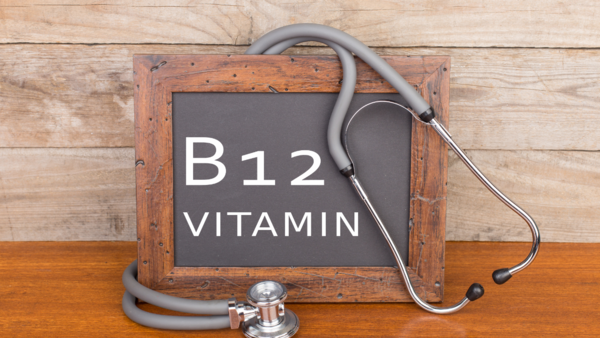Experiencing persistent fatigue? It's a common complaint, but it shouldn't be ignored. Feeling drained, even after sufficient rest, could indicate an underlying issue, and one potential culprit is a vitamin B12 deficiency. This essential nutrient plays a critical role in numerous bodily functions.

According to a 2019 study, approximately 47% of the Indian population suffers from a vitamin B12 deficiency. Dr. Alok Chopra, a leading cardiologist and functional medicine expert, sheds light on the importance of vitamin B12, its natural sources, and the potential risks associated with its deficiency, particularly among vegetarians.
Vitamin B12 is a water-soluble nutrient vital for overall health. Dr. Chopra emphasizes its crucial role in metabolism, digestion, and maintaining overall well-being. It's naturally found in certain foods, available as a dietary supplement, and also prescribed as medication.
Vitamin B12 is naturally present in animal products such as:
However, it is largely absent from plant-based foods unless they are fortified. Dr. Chopra notes that vegetarians often struggle to obtain sufficient B12 from their diets alone.

While plant-based foods typically lack B12, fortified options like nutritional yeast and certain cereals can provide a reliable source. Dr. Chopra suggests vegetarians consider supplements or B12-fortified products to meet their daily requirements.
Vitamin B12 is integral to several key bodily functions, including:
Despite its importance, vitamin B12 deficiency is common. Symptoms can include:

Dr. Chopra advises that B12 deficiency can be addressed through proper nutrition, intramuscular injections, or oral B12 therapy.
He also cautions against excessive vitamin B12 intake, which can lead to adverse effects such as diarrhea, itching, rashes, headache, dizziness, nausea, and heart failure. Individuals with optic neuropathy, polycythemia, gout, iron or folate deficiency, or low potassium levels should consult a doctor before taking B12 supplements.
Dr. Chopra advises against taking vitamin B12 supplements concurrently with vitamin D. He explains that vitamin D, being fat-soluble, is better absorbed with food, while B12, being water-soluble, is best taken on an empty stomach. The same principle applies to vitamin C.
Newer articles
Older articles
 Indian Astronaut Joins ISS: Shukla's Mission Ushers in New Era for India's Space Program
Indian Astronaut Joins ISS: Shukla's Mission Ushers in New Era for India's Space Program
 Ashada Gupt Navratri 2025: Unveiling Dates, Sacred Rituals & Hidden Significance
Ashada Gupt Navratri 2025: Unveiling Dates, Sacred Rituals & Hidden Significance
 Rishabh Pant's Unconventional Batting Redefining Cricket, Says Greg Chappell
Rishabh Pant's Unconventional Batting Redefining Cricket, Says Greg Chappell
 Moto G54 Price Slashed in India: Check Out the New, Lower Cost
Moto G54 Price Slashed in India: Check Out the New, Lower Cost
 JPG to PDF: A Graphic Designer's Guide to File Conversion and Quality Preservation
JPG to PDF: A Graphic Designer's Guide to File Conversion and Quality Preservation
 'The Traitors' Star Apoorva Mukhija Accuses Sudhanshu Pandey of Misogyny and Verbal Abuse After On-Screen Drama
'The Traitors' Star Apoorva Mukhija Accuses Sudhanshu Pandey of Misogyny and Verbal Abuse After On-Screen Drama
 Van der Dussen to Captain South Africa in T20I Tri-Series Against New Zealand and Zimbabwe
Van der Dussen to Captain South Africa in T20I Tri-Series Against New Zealand and Zimbabwe
 20 Minutes to a Healthier Brain and Heart: Neurologist's Simple Strategies to Combat Cholesterol, Blood Pressure, and Dementia Risk
20 Minutes to a Healthier Brain and Heart: Neurologist's Simple Strategies to Combat Cholesterol, Blood Pressure, and Dementia Risk
 England's Audacious Batters Claim They Could Have Chased Down 450 in First Test Win Over India
England's Audacious Batters Claim They Could Have Chased Down 450 in First Test Win Over India
 Popular Finance YouTuber "financewithsharan" Hacked: Security Measures to Protect Your Account
Popular Finance YouTuber "financewithsharan" Hacked: Security Measures to Protect Your Account